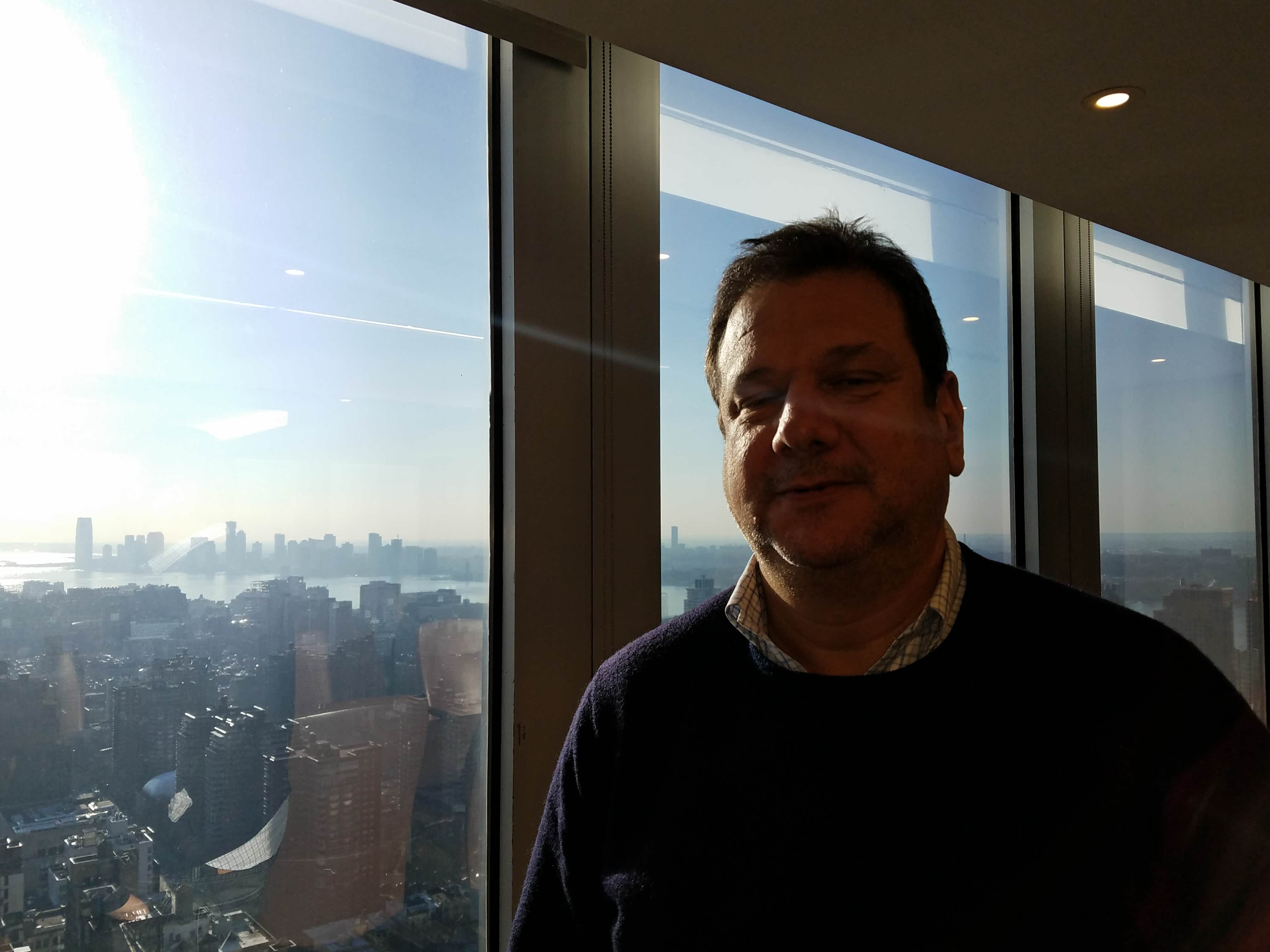
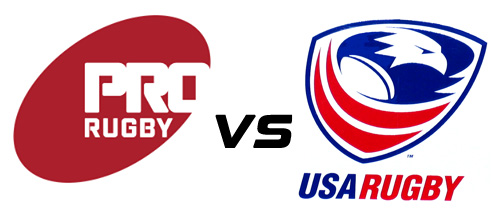 NEW YORK, NY – With a showdown looming between USA Rugby and Pro Rugby (specifically its owner, Doug Schoninger), the Internet has been abuzz. There are those condemning Schoninger, citing the grievances and lawsuits being filed. Others are blaming USA Rugby for its inaction, bad decisions and lack of direction. And as is the case with our current political climate, just bringing the topic up can get you labeled as being “on the other side,” of those in the conversation. But while reporting both sides of such an ugly and polarizing situation is by all indications a lose-lose of epic proportions, it’s still part of the job description here. And we welcome any of those involved to state their piece here… With that and at the risk of being tarred, feathered, drawn-n-quartered, burned at the stake, shunned in the pubs, sued and called horrible names, here is Mr. Schoninger’s view of what has transpired along Al Gore’s Information Super Highway in recent days.
NEW YORK, NY – With a showdown looming between USA Rugby and Pro Rugby (specifically its owner, Doug Schoninger), the Internet has been abuzz. There are those condemning Schoninger, citing the grievances and lawsuits being filed. Others are blaming USA Rugby for its inaction, bad decisions and lack of direction. And as is the case with our current political climate, just bringing the topic up can get you labeled as being “on the other side,” of those in the conversation. But while reporting both sides of such an ugly and polarizing situation is by all indications a lose-lose of epic proportions, it’s still part of the job description here. And we welcome any of those involved to state their piece here… With that and at the risk of being tarred, feathered, drawn-n-quartered, burned at the stake, shunned in the pubs, sued and called horrible names, here is Mr. Schoninger’s view of what has transpired along Al Gore’s Information Super Highway in recent days.
*The following was carefully transcribed from a recorder manually, as Mr. Schoninger was not prepared to come on camera at this time.
RWU: For those that aren’t familiar with the term, “sanctioning” is a pretty big deal. In order for a player to be eligible to represent his/her nation, they can only play in events or leagues sanctioned by their nation’s governing body. There may be an instance in which the player gets a pass and is allowed to participate in a non-sanctioned event, but that is rare. In this case, you, Doug Schoninger, were the first to have a professional men’s 15s set-up sanctioned by USA Rugby. That agreement was reached with then-CEO Nigel Melville and with the approval of the USA Rugby Board of Directors. Some people claim that violations of its terms render it void. Others question its validity. And there those that doubt it’s very existence. What can you add to this?
 Schoninger: When we formed this working partnership, it was an integration of our national team and our competition. That never really happened because I feel they never really wanted it to happen. Their Head Coach for 15s was around for 1 of our games. Their Head Coach for 7s was at none of our games. Nigel [ CEO Melville], who was around for almost all of the season, yet wasn’t at one of our games. Dan Payne [who took over as CEO for Melville when he departed for England and the RFU job] just started and was at one of our games. The Board Members in total were at one of our games. One person. It’s not really an integration that they wanted to put effort into… I’m not sure. I think it’s sad because we can help them. We paid players to play in their Test window. We have players right now… I just released three players that are still on our payroll that are playing in the Falcons tourney in South America in January. [JP Eloff, Alex Elkins, Matt Hughston] I didn’t have to do that. It wasn’t a mandatory test-period release. But I thought about the players… and we’re letting them go. For a partnership to work you need sides to want it, and it’s fine if they don’t want it. If that’s changed, we need to change.
Schoninger: When we formed this working partnership, it was an integration of our national team and our competition. That never really happened because I feel they never really wanted it to happen. Their Head Coach for 15s was around for 1 of our games. Their Head Coach for 7s was at none of our games. Nigel [ CEO Melville], who was around for almost all of the season, yet wasn’t at one of our games. Dan Payne [who took over as CEO for Melville when he departed for England and the RFU job] just started and was at one of our games. The Board Members in total were at one of our games. One person. It’s not really an integration that they wanted to put effort into… I’m not sure. I think it’s sad because we can help them. We paid players to play in their Test window. We have players right now… I just released three players that are still on our payroll that are playing in the Falcons tourney in South America in January. [JP Eloff, Alex Elkins, Matt Hughston] I didn’t have to do that. It wasn’t a mandatory test-period release. But I thought about the players… and we’re letting them go. For a partnership to work you need sides to want it, and it’s fine if they don’t want it. If that’s changed, we need to change.
RWU: In terms of what, sanctioning?
Schoninger: Right.
RWU: What will 2017 look like?
Schoninger: I don’t know… I’ve had a lot of conversations with people internationally and domestically on what that should look like. There are a lot of options. How many teams we should have? Should there be a more All-Star type competition… Should we play international clubs…
RWU: And is this sanctioned?
Schoninger: Well, my sanction is still in place. It has another year and a half-ish, plus extensions. So we’ll see what that looks like. The original sanction was 3 years.
RWU: And this is something you pay for – the right to use it – right?
Schoninger: Well, I didn’t pay very much to use it but the idea was that I’d pay for the losses of the first couple of years, the operating losses. Last year we lost many, many, many, many, millions of dollars, right? Obviously, [if] you do the math, right? We invested more money than anyone has ever invested in America by far. We paid more players – over 2oo last year – and coaches. Most had never been paid before to play rugby. We lost a lot of money. The idea is in business you want to have a long enough runway that you can make up your losses in your early years. That was something I thought was in agreement that clearly is now questioned.
RWU: What do you mean? The length of the sanctioning agreement?
Schoninger: Right and if the agreement is shorter, you can’t invest as much money because you don’t have the length to make it back up. So when that became very clear, I said ‘Whoa!’ – let’s just put the brakes on, we’re not going to probably have a competition in April, we’ll probably move it back at least a couple of months…
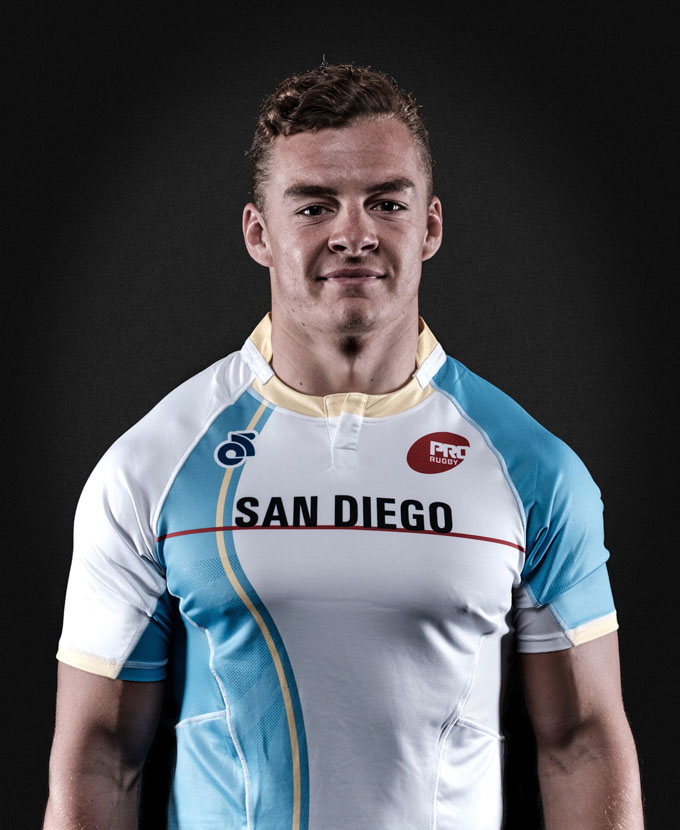
RWU: Some players and coaches are claiming they are owed money, that contracts haven’t been paid. San Diego Breakers scrumhalf Tom Bliss is saying on Twitter that his contract allowed him to play overseas.
Schoninger: Incorrect. No one can. They all had to be available. If you’re overseas, you’re not available. Period. They knew that. They never had authority to go, they went because they felt they could do whatever they want. The few people that went are now the ones that are complaining. If you didn’t go… I even offered some of the players not him, to come back and start playing here again, even though they terminated their agreement by leaving. Let me explain to the purpose of these… A lot of people made much more than they should have. These are the other sports in America; Arena Football, you get $800 a game.. We had some of these make, you know… 12 games for $35,000… That’s $300o a game versus $800… Arguably the same sport. Arguably Arena Football is much more professional and obviously much older… My point is that they were paid – in a lot of cases sometimes excessively – a lot of money to do three things: play for us during the season, help out USA Rugby when necessary, or help clubs that we like to associate with, to build their game. We want to build up the game in America with our dollars. We don’t need to be paid by American dollars and American fans and American sponsors to go to England to build their game. That’s not the plan. It was never the plan, speak to Paul Holmes, he understands that was never the plan from the beginning – as he represents to me. It was never the plan. Unfortunately, there’s like 4 or 5 of them, that decided on their own, without approval, to leave.
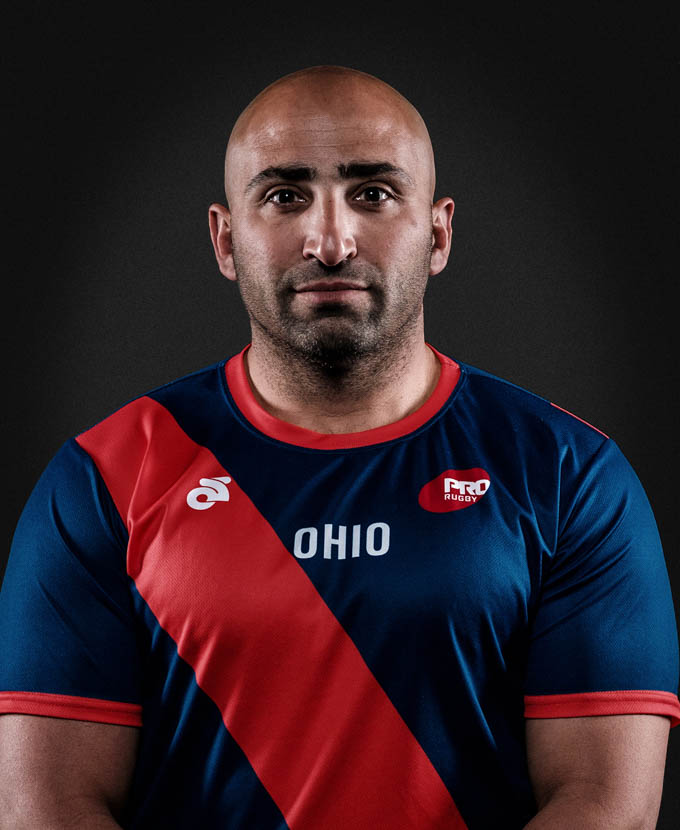
RWU: Bliss says he had permission.
Schoninger: I’d like to see it… Not from me.
RWU: It does seem that overseas exposure was considered good for Pro Rugby, though. We’ve seen Pro Rugby tweets and Facebook posts saluting players getting contracts overseas or playing overseas as a good thing.
Schoninger: I think it’s positive. I think it would be more positive for American rugby if Bliss, a good player like him, was at a local club influencing local players. You can see it from both sides, right? It’s probably six of one and half dozen of another. That was our call, that was the call we made early on. It was always that way, it never changed. I can see that if you can afford that promotion, but we can’t afford right now to build up other countries. We have to build our own. And maybe Tom Bliss, the good player that he is, would have encouraged 20 kids to play, when they see him play… and they become the next player. If it happens in England how does it benefit USA Rugby. If it happens in Ohio or San Diego that truly does benefit rugby in America, right? …and one of the real misconceptions, what people are accusing me of, a whole bunch of stuff, like not paying players. The reality is these contracted players, there are many different types of players. There are seasonal players international players, some that came for just a month… Eric Fry was 4 games, I think.
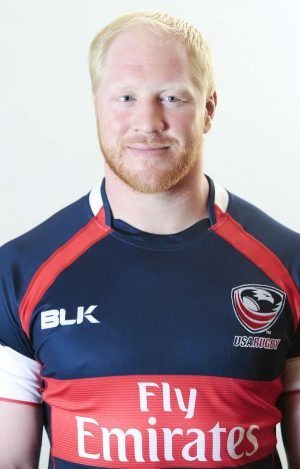
So there was a bunch of different situations. But these 52-week players, they had off-season responsibilities. Two in particular; one was to keep themselves in shape. And a big problem with some of our teams, particularly in San Francisco, which is now closed… they showed up right off the sofa, off the couch, completely out of shape and it took them two months at least, to get to the point at which they should have been, three months before. And we didn’t want that to happen again. So it’s important for 52 weeks to ensure that we can kind of monitor them… and their training off-season.
RWU: So, you would have a facility for them to go to during the off-season?
Schoninger: The goal is yes, right? The goal is a centralized facility. We’re not there yet. So it’s very ad hoc. We work together and put a training program together, between USA Rugby’s strength and conditioning, between Ray Egan’s a little bit… it was very ad hoc, as it would have been. That’s not the goal… The second part for the 52 weeks was to kind of insure that players were available for USA Rugby stuff… and also stuff put up for us. Maybe promotional event or maybe we put an All-Star game in. But what was more likely to happen was something like the Falcon’s tour in January. So if they said we want a player but the player wanted to say, go on vacation, we could say; you’re still employed and you have to do this. That’s your responsibility. That as an employee of Pro Rugby you need to satisfy requests from USA Rugby. So the whole thing makes absolutely no sense to me when they represent that in fact they earn their money only during the season, when they’re the ones that benefit from it and also wanted this relationship. So once again, very confused about some of things they do but…
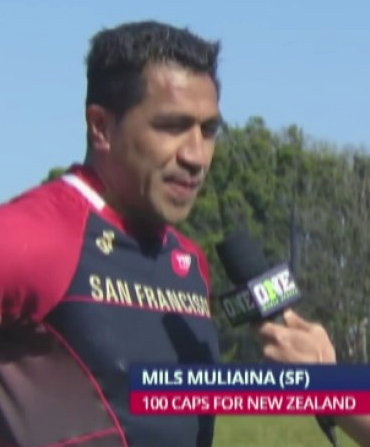 RWU: Again, speaking about unpaid player contracts, according to the Rugby Today article, Mils Muliaina says he’s owed $20,000.00 on his contract. What do you have to say about that?
RWU: Again, speaking about unpaid player contracts, according to the Rugby Today article, Mils Muliaina says he’s owed $20,000.00 on his contract. What do you have to say about that?
Schoninger: Well, I’ll say a couple of things… Number one is I spoke to Mils before we hired him and he assured me in good faith… I was a little concerned, based on some of the things I had heard, and I’d been warned about him. And also some of the visa issues, we were lucky to get him a visa… so we continued. So when he finally showed up, which was about a week later than he was supposed to show up, he played pretty well his first couple of games. Then sometime in the next couple of weeks, he left with no permission to go back to New Zealand for a week, right in the middle of the season, with games to be played. He came back and kind of on and off played, saying he was injured, not injured, wasn’t injured. The only reason he played the last game was because he wanted to prove he wasn’t injured, even though he hadn’t played the three games prior… My point is for all players, if you’re not injured you need to play because that’s what your job is. If you are injured you need to get treatment and go on Disability, which happened in probably 10 to 12 cases this year… players going on Disability. Some very serious injuries, so not so serious injuries. If a player is out more than a week, you put them on Disability. That’s kind of the rules of the states; over ten days, whatever. He was out for over three weeks, so he’s in Disability. We paid him $50,000.00 on a $70,000.00 contract and the rest, the $20,000.00 is being claimed through Disability. He was not available for us to play. We have insurance for that. We are processing that. I’m not what the State of California has come back with… you know, they do their own valuation. But the reality is if he wasn’t injured, he should have played. We wanted him to play. He claimed that he was injured, which would to me indicate a disability. You can’t be injured and not on Disability.
RWU: Who files for the Disability?
Schoninger: We do. And it’s been filed and there’s a process. I’m not that familiar with the process but if there’s an issue with the process we can investigate what’s going on. But that’s the story and that is what happened. You know, I can claim a lot of things, but I like to claim things that are true. When he came to our season, he represented that he was healthy. Whether he was completely healthy is disputable, considering the injuries he suffered during the season. What he claimed he suffered… It’s not black and white. Our point is that we want to be fair. That doesn’t always mean doing what the other person wants to do. That means just being fair. You know, most or our players were incredible. We had very, very small squads, right? So most of those players – including internationals – played every game. He played four. Four games, right? We had players playing 12 games, 11 games, 10 games. Probably no one else even close to playing only 4 games. So it was an attitude, right? And it was an attitude that you want to contribute, or it’s an attitude that you want to take advantage. Unfortunately, Mils has taken the second… You know at this point, you know what’s done is done. He made the equivalent of over… 4 divided by 70, is his contract. So do the math… $18,000.00 a game.
RWU: Was he contracted for the entire season?
Schoninger: Just the season. He showed up late. There was an understanding he was going to show up late. He showed up a week later than he was supposed to show up. He had made no rush to come. It was a structural thing. But the point is he made $50,000.00 of the $70,000.00 and the other $20,000.00 is in Disability, which is where it should be since he claims he has a disability. You can’t claim you have a disability and also not be available to play, and then argue that you shouldn’t be put into the Disability Insurance Pool. It’s gotta be common sense, right? Arguably when he went to New Zealand without permission, he broke the contract, right? I mean he wasn’t available to play the games that we had or train. And a lot of him coming was not just about him playing, it was about training with our guys, providing leadership and all that stuff that was very apparent in the first game, but completely disappeared, probably by the second game. And by him leaving, without any notice – I’m sure he had some personal problem that he had to attend to, but we all do. But we all have commitments, so you have to make choices. So that’s the story.
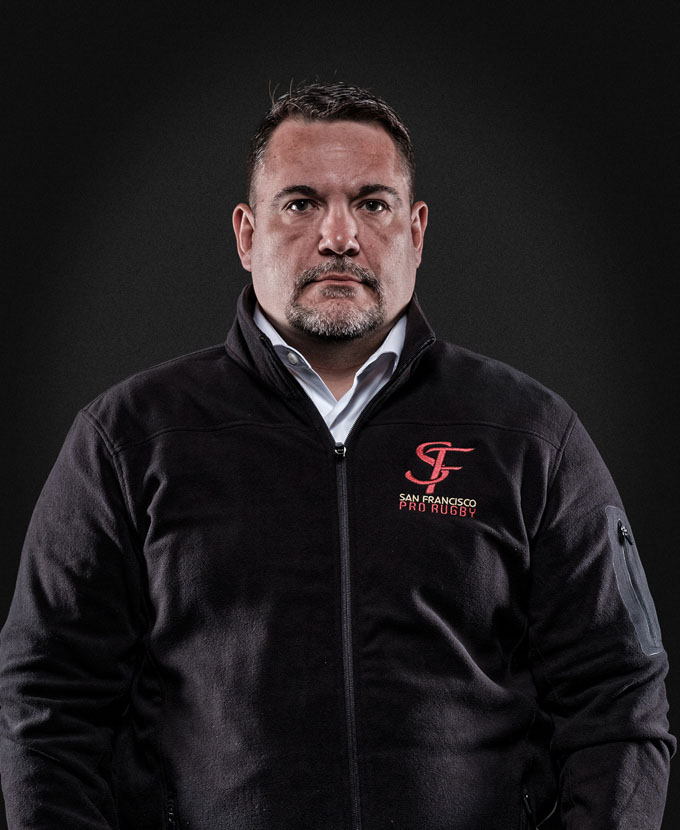
RWU: Getting back to the San Francisco Rush – a now disbanded team. The head coach, Paul Keeler says he’s owed approximately 14,000 in salaries and expenses and filed with the Labor Board in CA.
Schoninger: I haven’t seen that complaint so I can’t comment on it. When I get it, I guess I’ll know what it is… The thing that’s very unfortunate about the Pat Clifton article is that I spent an hour and a half with him on the phone with him prior to him releasing it, and I rebutted almost everything, every point he’s made… Now, I haven’t read it entirely because I like to keep some food in my stomach, but as we can get to them, some are very easy to disprove and some are more subjective. I’m willing to go through each one, but it needs to be done in a proper way, not in a one-sided accusation. The first sentence, says I’m a “baaaaad” guy. When my kids say bad I think that’s good… I don’t know what that means. But if I’m a bad guy, this guy paid 200 hundred rugby people over five million dollars, right? That’s a bad guy? How much money have they gotten from anyone else in this country? From his boss, United World Sports, how much money have they paid rugby players? For all their taking credit, all they have done is attack us from the second we announced. There hasn’t been a single positive thing from their mouths and it’s disgusting. It’s worse than disgusting; it’s bad for rugby and it’s also bad for employees. This year we were going to have probably close to 400 employees, right? 400 international and domestic. And now, we might have a lot less. I don’t know what we’ll have. And thanks to the people like Pat Clifton, the 25 people out there that see you as a threat… I’ll take that as a compliment because when people see you as a threat you’re obviously doing something right… You know, we’re here to stay. He’s irrelevant to me. He needs to fact check and he needs to be careful. The problem with rugby in America is that that’s allowed. Because you don’t see that happening in other sports. You don’t see that lack of professionalism. That lack of checking. They just want to attack, right? Well I’m done. I’m not attacking back – not in the court of public opinion, for sure. There are other courts out there that I can utilize. And if people want to believe what that have to say, what am I going to do? The good news is for every bad/negative comment I see on Facebook, I get triple emails from people. And the sad part is, it’s almost like this silent majority is scared to say that we’ve moved rugby so much further than anyone else has ever done… That they’re so proud of what happened. But whether it’s me or somebody else, rugby will grow in this country. But it will not be within the structure that’s kept it down for twenty years.
RWU: You met with USA Rugby CEO Dan Payne here in NYC last week. How did that go?
Schoninger: It went reasonably well but we have a complete misunderstanding on how to proceed.
RWU: Okay… can you explain the 30-Day Termination Clause?
Schoninger: We have agreements that call for Mutual Termination. Employees can terminate after 30 days and I can terminate after 30 days. When I met with Dan and Alex [Magleby, USA Rugby General Manager – National Teams & Performance], it became clear to me that we had a major disagreement. I said, ‘Well what do we do about next year? You know, I’m more about looking forward than looking backwards.’ And I said, ‘Well, our season’s starting as planned in mid-April. We obviously have a disagreement. It’s going to effect that.’ The reason these players were still contracted was to play for them, do promotion for us – which we don’t really need now, and to train. The fact is that the earliest we are probably going to do a season is end of May, early June? So they don’t really need to be training. So that’s what led to the early… the option, taking of that early termination.
RWU: But one would argue that professional rugby players need to be training year round.
Schoninger: Right. They would be. But, since we’re so up in the air, like I said we might have a season in the fall, we might have a season in December, we might have a season in the Summer… I don’t know when we’re going to have it. What people forget is a lot of the decisions we are forced to make are not controlled by us, right? We just have to be reactionary. And so, what I felt was, we’re definitely restructuring in some way, in a much bigger, better way because of the relationship change USA Rugby is imposing on us, so let’s like take a breather… And just say… let’s not say we’re going to have a competition in May. Let’s say, we’re going to sign that when we decide that.
RWU: Does your sanctioning agreement include parameters that say you have to have a pro set-up in 2017?
Schoninger: I have to have a competition in 2017.
RWU: Right now you’ve got four teams.
Schoninger: Right now we’ve got five teams.
RWU: What would be the fifth team?
Schoninger: I can’t say. But it’s all up in the air.
RWU: So, you are planning on replacing the now-defunct San Francisco Rush squad?
Schoninger: Yes. You know the interesting part of this is that we may lose some of the venues, so we might have to rejingle things.
RWU: Different cities you mean?
Schoninger: Yeah… everything’s kind of back on the planning table again. It’s not where I wanted to be but it is where I am and you got to own where you are, and it is what it is. The agreement, as per my understanding, is changed. And so we have to change our business plan. And we have to decide upon our course of action and maybe there’s multiple paths… and maybe we insist upon what we think is really ours and maybe do something else… I don’t know. I’m taking next week off. January is a whole new year and at this point we’ll do what’s best.
RWU: You seem more relaxed now than I have seen you in a long time.
Schoninger: Because I am relaxed. You know something? I’ve been fighting what I knew to be true… it’s almost like a marriage falling apart in a weird way, right? So like it doesn’t just fall apart, right? It’s a struggle. And I’ve been struggling with my relationship with them for quite a long time. Kind of like a battered wife, in my interpretation. And I went to a divorce attorney. I get it. So, I’m relaxed now. It is what it is… Uncertainty is what breeds anxiety, right? I get it. I don’t fully accept it. I don’t understand why it’s the case. We’re evaluating our options on how we want to proceed. But I’m accepting….
RWU: Are you assuming it’s over?
Schoninger: It’s not over. It is hardly over. It is just beginning… No. Listen, we’ve invested a lot of energy and a lot of time based on what I believe were certain commitments. We expect those commitments to be honored.
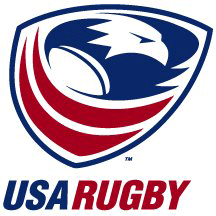 RWU: If you walk away, you walk away from the money you paid for the sanction…
RWU: If you walk away, you walk away from the money you paid for the sanction…
Schoninger: And all the money that we spent for our first year. A lot of it that paid coaches… You know we integrated some of their [USA Rugby’s] coaches, their players, their managers… into our program. We got visas for some of their people – that we didn’t want – for them, right? At our expense. Originally all the National Team players were supposed to be on their payroll and we would borrow them and pay – almost rent them – for our season. A much less expense.
RWU: Is that a problem as per the sanctioning agreement?
Schoninger: No. I just accepted that; understanding their limitations, working together as a partner. But partnerships have to mutual or they don’t exist and I’m not sure at this point what USA Rugby will do for us.
RWU: In what regard?
Schoninger: I can’t get into all the specifics. That will come out as it comes out. But there’s a lot. I think the real problem with USA Rugby is that it’s amateur. Probably not a well-bandwidthed organization. And I dealt with the CEO at the time [Nigel Melville] and Board members that were aware…
RWU: Aware of the sanctioning agreement?
Schoninger: Right. So this wasn’t done by one person as some people think. They have governance issues that I think three Board members have to sign off on it. So three members signed. So the point isn’t about that.
RWU: Some people wonder if the sanctioning agreement actually exists.
Schoninger: Interestingly enough, David Sternberg of RIM [Rugby International Marketing] sent me an email a couple of months ago questioning the existence of it, which was kind of laughable to me since there’s probably 50 emails with it attached, and I’m looking at a copy as I was reading it. Recently they found it… a copy with my and Nigel’s signatures.
RWU: The agreement is 3 years. What’s it entail?
Schoninger: I can’t get much into it. They’re going to get angry. It is what it is, you know. Listen, there are venues to resolve disputes. Contracts are not for people who get along; they’re for when people don’t get along. Contracts are worse-case-scenario documents. Fortunately, I guess we’re getting to that point and we’ll just go through the process a lot of people go through, right? The good news is that I don’t think it affects our growth. Actually it might help our growth in a weird way… I don’t know. An exclusive sanction is most-desirable, but an exclusive sanction where there is no enforcement is the least desirable. So we have to figure out where on the spectrum this sits and that’s not in my control. You know, I’ve been requesting this since April with Nigel…
RWU: Of extending the sanction?
Schoninger: Yeah, and there’s been offers made to me and retracted. There’s been a bunch of stuff. Now they’re using these Pat Clifton accusations as reasons not to… Whatever.
![]() RWU: Again… Will there be Pro Rugby II in 2017?
RWU: Again… Will there be Pro Rugby II in 2017?
Schoninger: And like I said earlier, we are evaluating our options and how it will look, when it will happen. It will be a substantial competition. It may or may not include international clubs participating. It may or may not include our teams traveling to international destinations to put on friendlies with them. There are a lot of options… You know, the good news is American rugby is on the map. It wasn’t on the map in March or April of last year. And it’s our obligation, and hopefully everyone’s in rugby, to keep it moving… Because I don’t think people realize how much movement’s happened in a very short period of time. Step back and don’t look at the trees, look at the forest. The forest is looking pretty good. We need to make sure that these little warts on frogs don’t become distractions. Unfortunately, some of these people making comments are doing that… to distract from the fact that we had a super successful year. If there are 7 or 8 or 9 players that have issues with us, there’s over 200 that do not… That if there are vendors out there that have issues, I might have issues with them… That if there are coaches with issues, I have very large issues with him. Unfortunately what’s happening is one-sided. Why is it one-sided? I don’t know. Is it a conspiracy? I don’t believe in conspiracy theories but it kind of looks slightly organized like a street gang, almost if you look at it. So I’m not that concerned. Overall, facts will prevail. There are processes for this. The attention we are getting from large media companies have not gone away… from other unions have not gone away… We will be bigger and stronger and USA Rugby needs to decide do we do it with cooperation or do we do it without cooperation.
RWU: Is there an amount of money that would get you to give up sanctioning? For somebody to buy you out?
Schoninger: Not for sale.
RWU: Not for sale?
Schoninger: Not at this point… Make an offer.
RWU: 10 million bucks.
Schoninger: No… I have almost 10 million in there. 2 years of hard work.
RWU: 15 million.
Schoninger: It’s not that.
RWU: There’s got to be a number.
Schoninger: I haven’t planned my future in terms of rugby. When I plan my future, maybe I’ll have a number. The devil’s in the details, right. I mean, I’m not leaving rugby. So if it included like a non-compete, it would never happen because I’m not leaving… Ever.
RWU: If I could arrange it where you, Dan Payne and Will Chang sat in a room and wouldn’t leave until there was an agreement in place, would you be party to that?
Schoninger: I am always available to talk to anyone at anytime. So much so, that last August when this thing was really brewing, with a one-day notice I flew out to Boulder because they were having a Board meeting and we sat and we tried to resolve it. We didn’t really get anywhere.
RWU: So… that’s a yes?
Schoninger: Yes! That’s more than a 100% yes.
RWU: Thank you, Doug.
Schoninger: You’re welcome.
And there is the full interview… Again, we welcome any of those directly involved to voice their side. We did reach out to USA Rugby’s Board Chairman Will Chang and CEO Dan Payne, but they are unable to comment at this time.
Please feel free to comment below, look for and “Like” our Facebook Rugby Wrap Up Page and follow us on Twitter@: @RugbyWrapUp, @Matt Ryan, @MeetTheMatts, @Junoir Blaber @Luke Bienstock, @Ronan Nelson, @Brian C Cole, @Zack Stryfeller and @DeclanYeats.

